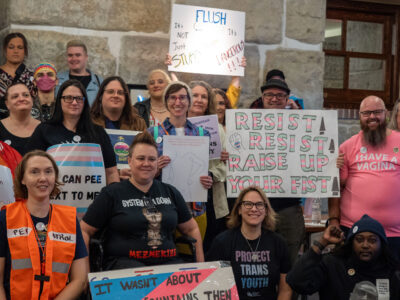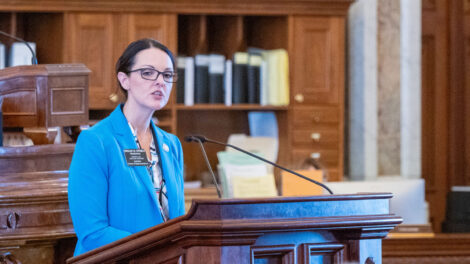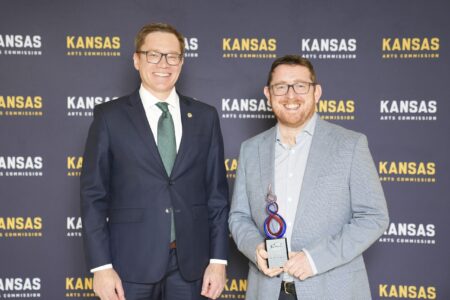Kansas officials certify 75-year-old woman as a voting-eligible citizen after birth certificate lost

In this file photo from Aug. 27, 2014, Kansas Secretary of State Kris Kobach, left, discusses the case of a 92-year-old Shawnee woman who initially couldn't meet a proof-of-citizenship requirement because she doesn't have a birth certificate, during a meeting of the State Election Board in Topeka. Listening to him are Attorney General Derek Schmidt, center, and Caleb Crook, right, an attorney in the secretary of state's office. (AP Photo/John Hanna)
Topeka — A 75-year-old eastern Kansas woman who is unable to get a replacement for her lost Arkansas birth certificate has been certified as a U.S. citizen, allowing her to vote.
The state Election Board issued the ruling Monday after meeting with Jo French, of Osage County, The Topeka Capital-Journal reports. Evidence of her citizenship included a record of her birth in a family Bible and Census records.
The board’s rare meeting comes amid ongoing legal challenges to Kansas’ election laws and regulations, including a lawsuit over a rule allowing thousands who have not proven citizenship to vote in federal but not state races. The Kansas primary election is a week away.
French praised the requirement as something “every state of the union” should replicate while also describing it as a hassle.
“I didn’t realize I had to go through this to be a citizen of a state,” she said. “I was working to just be a citizen. And I thought, ‘I don’t look funny, I don’t talk funny, I’ve been here all of my life.’ And I just couldn’t imagine having to go through this procedure to prove that I live here and that I can vote.”
Secretary of State Kris Kobach said the Election Board has only met a handful of times to review citizenship evidence since the proof of citizenship law was adopted. His office dug up many of the documents that demonstrated French’s citizenship, Kobach said. He called it a “perfect example” of how the Kansas system is working.
“We put a safety net in just for the very rare case of an individual who for some reason isn’t able to get a birth certificate or other proof of citizenship,” Kobach said.
Mark Johnson, a Kansas City-area attorney who is involved in a legal challenge to the state’s voting laws, said the fact that high-ranking state officials have to decide citizenship qualifications points to problems with the law.
“It points out the difficulty of the process that they’ve only done four or five of these,” Johnson said.
The American Civil Liberties Union sued Kobach last week following a state board’s approval of regulations earlier to create a two-tiered voting system. Under the new rule, those who registered to vote at Department of Motor Vehicle locations but didn’t provide proof of citizenship will be allowed to vote in federal races but not local and state contests. The ACLU argues that decision denies full voting rights to about 17,000 people.





